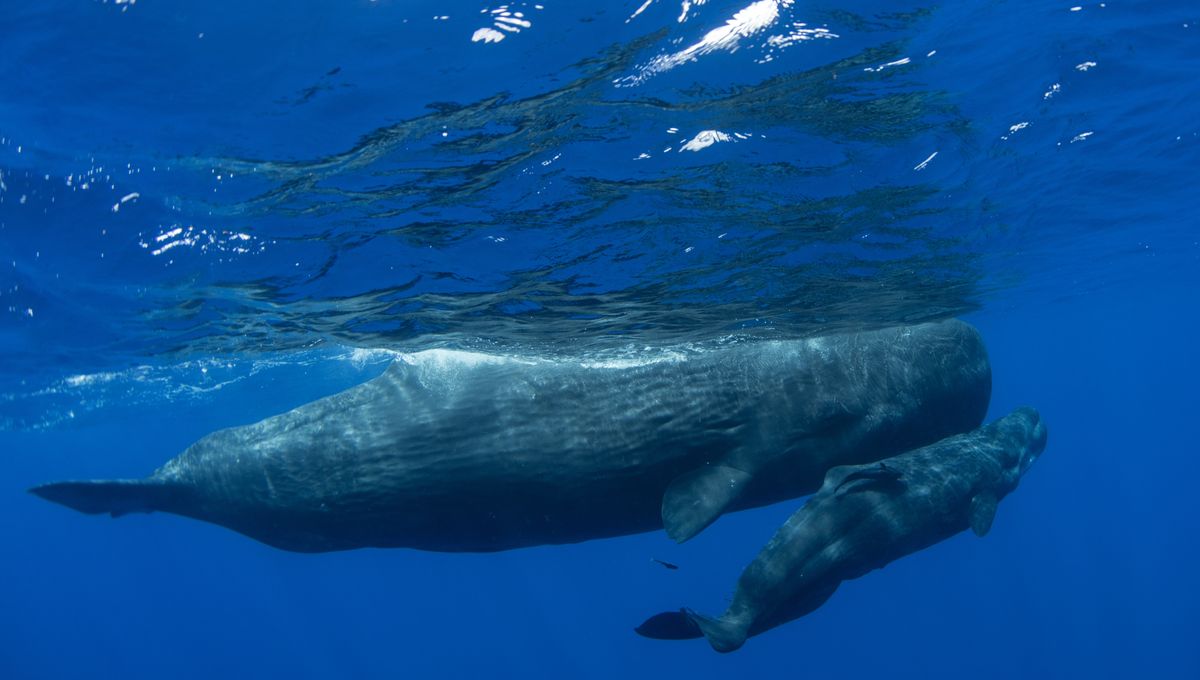
The Caribbean island of Dominica might only be small, but it’s now taken on the mighty task of protecting one of our planet’s largest animals: the sperm whale. By creating the world’s first marine protected area, the island nation hopes to simultaneously keep the giant species from harm and take advantage of its pooping habits – yes, you read that right – to tackle the climate crisis.
Making the announcement on Monday, the Dominican government outlined its plans to create a reserve of nearly 800 square kilometers (300 square miles) of water to the west of the island. That’s bigger than the island of Dominica itself, which is around 750 square kilometers (290 square miles).
“We want to ensure these majestic and highly intelligent animals are safe from harm and continue keeping our waters and our climate healthy,” said Roosevelt Skerrit, the prime minister of Dominica, according to AP News.
Sperm whales are currently classed as a vulnerable species on the IUCN Red List, largely due to hundreds of years of persistent whaling. Whilst hunting them is now illegal in most parts of the world, they can still encounter other human-made dangers near Dominica and beyond, such as entanglement in fishing nets or getting hit by ships.
With less than 500 sperm whales estimated to live in Dominica’s waters, protecting the species from such incidents is crucial. “One calf being entangled can mean the end of a family,” said Shane Gero, a whale biologist and founder of the Dominica Sperm Whale Project, speaking to AP News.
The Dominican government has said that an officer and observers will be appointed to ensure rules are being met, which include limiting the number of boat tours, allowing only sustainable artisanal fishing, and delineating an international shipping lane.
“The government of Dominica has realized that the sperm whales, which were probably here before humans, are also citizens of Dominica,” said Enric Sala, an explorer-in-residence at National Geographic. “These whales will spend most of the year offshore the island. So, they are taking care of some of their citizens in a way that few nations have ever done before.”
In return, the sperm whales might end up taking care of the climate crisis through the somewhat surprising medium of poop. Although it’s not entirely clear why, sperm whales in Dominica defecate a lot – one poor camera crew has even been pooped on. Gero suggested it could be down to eating more, or the type of squid they’re eating, like the marine equivalent of the morning coffee aftermath. Regardless, it has an unexpected benefit.
When sperm whales need to “drop the kids off at the pool”, they have to go near the water’s surface; their non-vital functions, like clearing out their bowels, shut down when they’re in deeper waters. At the surface, their nutrient-rich poop helps to feed phytoplankton, which in turn blooms. These blooms are useful in tackling the climate crisis because phytoplankton capture carbon dioxide, dragging it down to the ocean floor when they die.
Who needs fancy carbon capture techniques when we’ve had whale poop all along?
Source Link: Tiny Island Creates World's First Marine Protection Area For One Of Earth’s Largest Animals